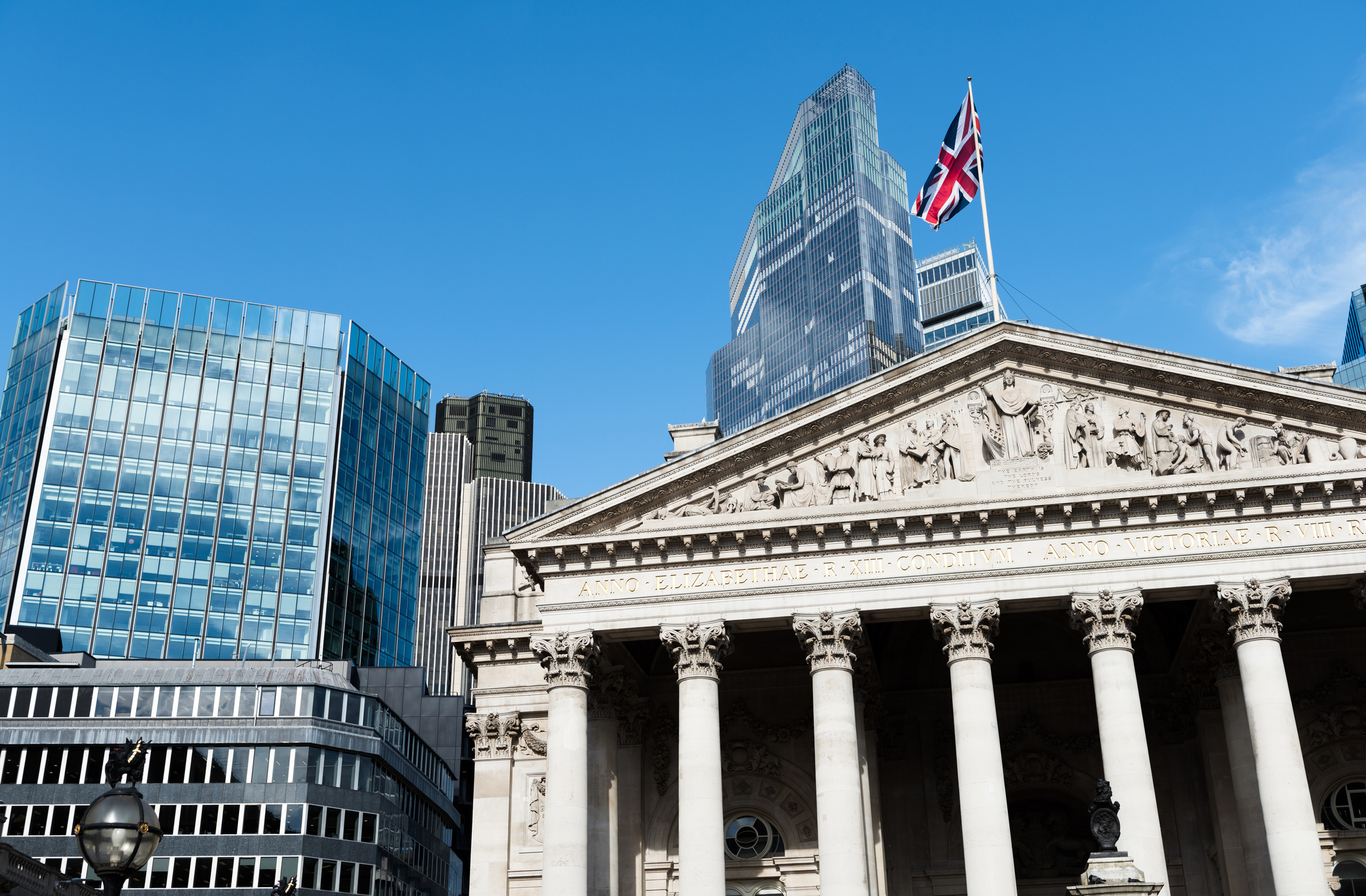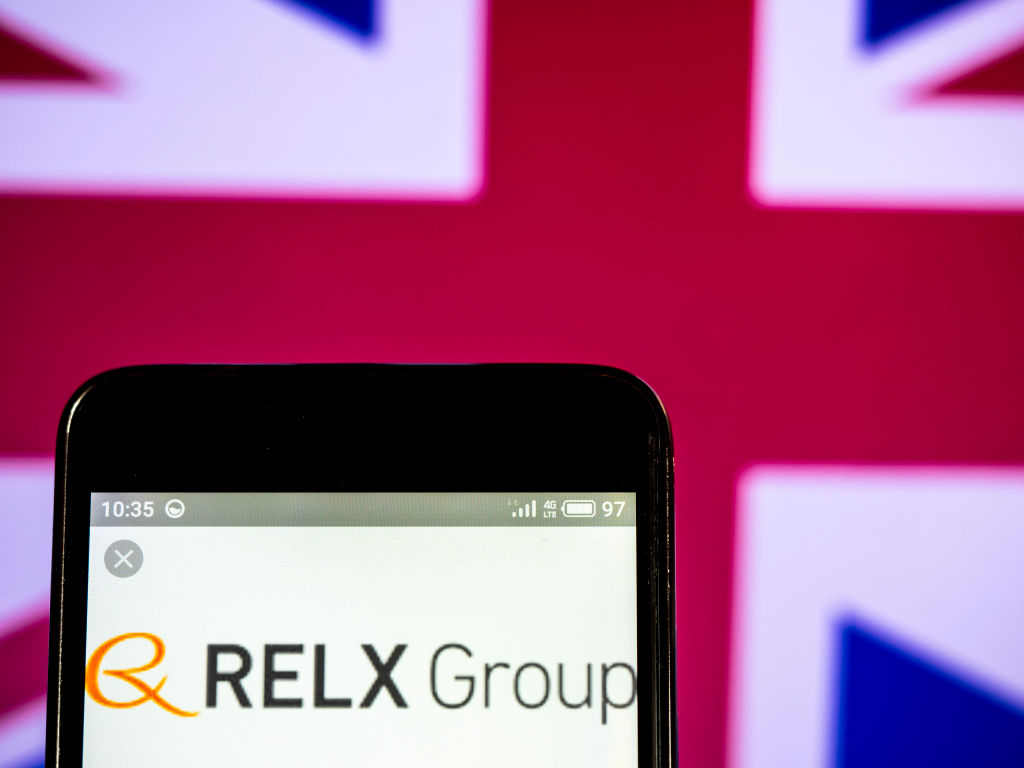
Get the latest financial news, insights and expert analysis from our award-winning MoneyWeek team, to help you understand what really matters when it comes to your finances.
You are now subscribed
Your newsletter sign-up was successful
Want to add more newsletters?

Twice daily
MoneyWeek
Get the latest financial news, insights and expert analysis from our award-winning MoneyWeek team, to help you understand what really matters when it comes to your finances.

Four times a week
Look After My Bills
Sign up to our free money-saving newsletter, filled with the latest news and expert advice to help you find the best tips and deals for managing your bills. Start saving today!
It’s now clear the UK economy is doing relatively well compared to Europe rather than falling behind, as was previously thought. However, in stock market terms, Europe remains the leader.
Over the past five years, the UK’s FTSE All Share index has returned 20% while the FTSE Europe ex-UK index has returned 40%. As a result, Europe ex UK still accounts for around 12% of the MSCI All Countries World index while the UK has sunk to just 3.5%.
Europe’s winners
Europe has outperformed as its leading companies have prospered on the world stage. Novo Nordisk recently overtook LVMH as Europe’s largest company, thanks to a recent study showing that its slimming drug, Wegovy, had a significant cardiovascular benefit. Novo Nordisk’s share price has tripled in the last three years while LVMH’s has merely doubled.
MoneyWeek
Subscribe to MoneyWeek today and get your first six magazine issues absolutely FREE

Sign up to Money Morning
Don't miss the latest investment and personal finances news, market analysis, plus money-saving tips with our free twice-daily newsletter
Don't miss the latest investment and personal finances news, market analysis, plus money-saving tips with our free twice-daily newsletter
Meanwhile, the market value of ASML, which supplies high-tech equipment to the world’s semiconductor producers, has multiplied more than seven-fold in the last ten years while Europe’s long-established giants, Nestle, Roche and, to a lesser extent, Novartis have been solid performers.
These winners show it’s hard to ignore Europe if you’re looking for the best companies. Brian Chingano of Verdad Research notes that “after decades of outperformance by the US relative to international markets, capital has flooded into the US market while largely shunning international markets.”
Company profitability, both in terms of gross profit and of cash flow relative to assets, is significantly higher in Europe than in North America, yet “the European market trades at a price/book ratio of 1.9 compared with 3.9 in North America.” “We believe that the combination of historically wide valuation spreads in Europe and higher levels of profitability bolsters the case for significant outperformance of European value stocks,” he concludes.
Therefore, there’s a good case for buying Europe-focused investment trusts and there’s a good selection of well-managed trusts trading at discounts to net asset value (NAV) to choose from.
Top trusts
The largest is Fidelity European (FEV) with £1.7bn of assets. It trades on a 5% discount and yields 2.3%. The top three holdings, Nestle, Novo Nordisk and ASML account for 17% of the portfolio and unlike other funds, it’s a little less growth-orientated with financials accounting for 22% and French energy major Total the fifth largest holding at 4.6%. The five-year total return is 70%.
BlackRock Greater Europe Trust (BRGE) has assets of £590m and trades at a discount of 4%. Novo Nordisk, LVMH and ASML are its largest holdings, accounting for 23% of the portfolio and it’s clearly focused on growth with no energy exposure. It does have some exposure to the UK - RELX is its fourth-largest holding. Over the past five years, the trust has returned 53% including income, and it currently offers a yield of 1.2%.
Two Henderson Trusts, European Focus (HEFT) with £340m of assets and Eurotrust (HNE) with £290m, trade on 11% and 12% discounts respectively and both yield nearly 2.8%. They are both growth-focused but have different portfolios; HEFT has 27% in industrials while HNE has 19% in healthcare. They’ve returned 46% and 42% respectively over the past five years.
JP Morgan European Growth & Income (JEGI), with £400m of assets and trading on a 10% discount, has the highest yield at 4.4% without the obvious corollary of a bias to value. Its shares trade on an 11% discount but have returned 41% over five years.
The tail-enders, European Trust and Baillie Gifford European (both once sector darlings) have been dismal performers over the last five years but have the strongest bias to growth. Their fortunes may improve but it is probably best not to bet on them yet.
Get the latest financial news, insights and expert analysis from our award-winning MoneyWeek team, to help you understand what really matters when it comes to your finances.

Max has an Economics degree from the University of Cambridge and is a chartered accountant. He worked at Investec Asset Management for 12 years, managing multi-asset funds investing in internally and externally managed funds, including investment trusts. This included a fund of investment trusts which grew to £120m+. Max has managed ten investment trusts (winning many awards) and sat on the boards of three trusts – two directorships are still active.
After 39 years in financial services, including 30 as a professional fund manager, Max took semi-retirement in 2017. Max has been a MoneyWeek columnist since 2016 writing about investment funds and more generally on markets online, plus occasional opinion pieces. He also writes for the Investment Trust Handbook each year and has contributed to The Daily Telegraph and other publications. See here for details of current investments held by Max.
-
 Last chance to invest in VCTs? Here's what you need to know
Last chance to invest in VCTs? Here's what you need to knowInvestors have pumped millions more into Venture Capital Trusts (VCTS) so far this tax year, but time is running out to take advantage of tax perks from them.
-
 ISA quiz: How much do you know about the tax wrapper?
ISA quiz: How much do you know about the tax wrapper?Quiz One of the most efficient ways to keep your savings or investments free from tax is by putting them in an Individual Savings Account (ISA). How much do you know about ISAs?
-
 Fund inflows hit a six-month high in November – where are investors putting their money?
Fund inflows hit a six-month high in November – where are investors putting their money?Investors returned to the financial markets amid the Autumn Budget in November 2025 but caution remains.
-
 The top stocks of 2025 - did you pick a winner?
The top stocks of 2025 - did you pick a winner?Last year was a chaotic one for the stock market, but which stocks did investors buy the most of?
-
 FTSE 100 dividend forecast slips – should you buy UK equities?
FTSE 100 dividend forecast slips – should you buy UK equities?Analysts have dialled back their FTSE 100 dividend forecasts, but UK equities could still offer an attractive yield overall
-
 The top stocks in the FTSE 100
The top stocks in the FTSE 100The FTSE 100 celebrated its best year since the global financial crisis in 2025 and has hit new highs early this year. Which are the top stocks that drove last year's gains?
-
 FTSE 100 dividends: where to find the best yields for UK equities
FTSE 100 dividends: where to find the best yields for UK equitiesFTSE 100 dividend forecasts have sagged but investors can still find good yields in UK equities with payments expected to reach more than £80 billion in 2025
-
 Burberry dumped out of the FTSE 100 after 15 years - here's everything you need to know
Burberry dumped out of the FTSE 100 after 15 years - here's everything you need to knowBurberry loses its place to Hiscox, while tech firm Raspberry Pi is promoted to the FTSE 250 after listing in July.
-
 Relx outperforms: should you buy this FTSE 100 success story?
Relx outperforms: should you buy this FTSE 100 success story?Relx, a fast-growing risk management and analytics group is benefiting from artificial intelligence
-
 Hargreaves Lansdown takeover: what it means for your money
Hargreaves Lansdown takeover: what it means for your moneyBritain’s biggest investment platform has agreed a £5.4 billion takeover. What does it mean for shareholders and customers?
